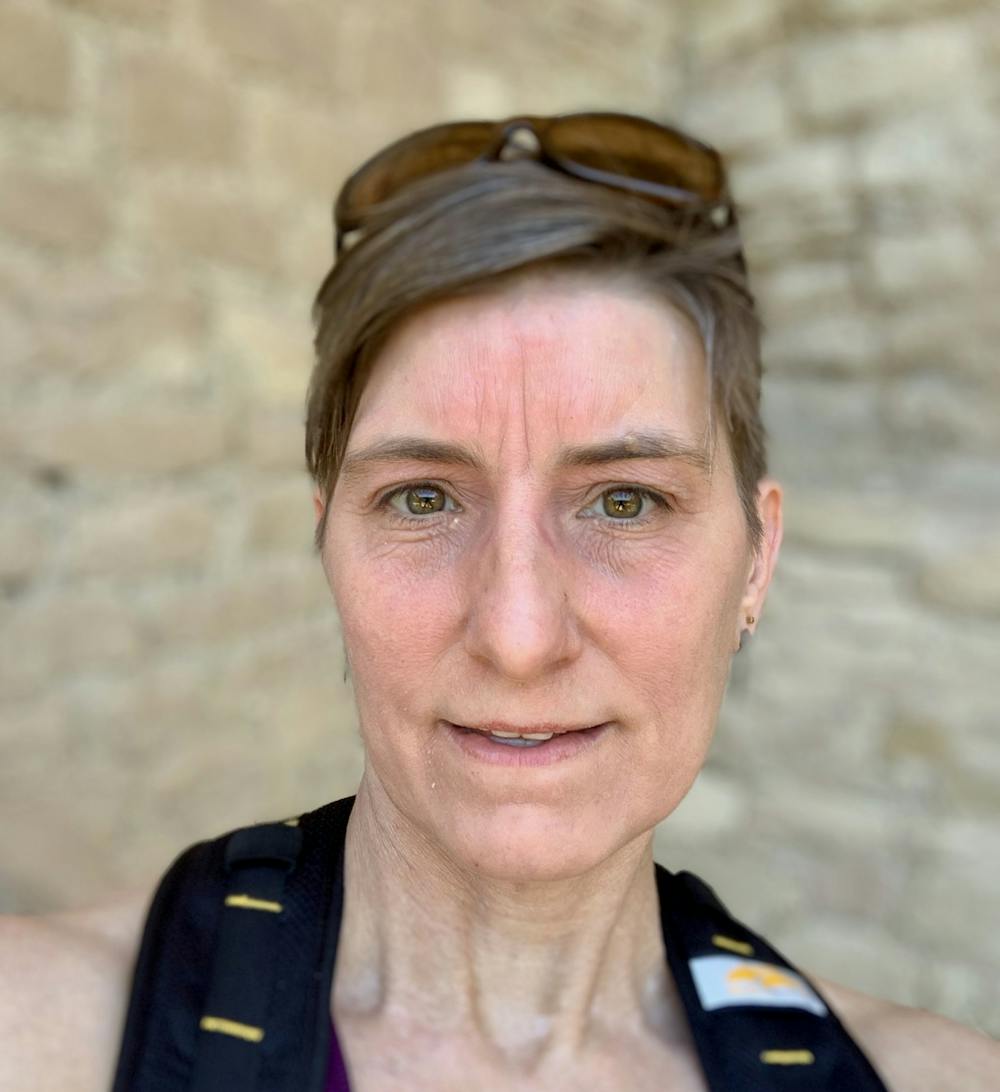Though she got her start in microbiology in her undergraduate program, University of New Mexico professor Amy Farnbach Pearson now studies medicine through the humanities lens. She seeks to broach conversations on how disease presents in societies and what it means for patients perceived to be afflicted.
Farnbach Pearson joined the Honors College team this year, an environment that has been historically welcoming to interdisciplinary conversations and out-of-the-box curricula. She’s a temporary part-time professor teaching “Tuberculosis to COVID-19: What is Health?” this semester, which is one medium she uses to have conversations on how Western societies have and continue to respond to diseases.
COVID-19 isn’t the singular focus of the class because students have so much familiarity with the topic, Farnbach Pearson said, but it’s a valuable way to study how people theorize and interact with disease and ailments. She said though western biomedicine is data-driven, it has cultural and social influences.
“What we’re seeing in terms of COVID-19, in terms of vaccine hesitancy, resistance to efforts like wearing masks and home quarantine or home isolation, are sort of the latest iteration in a long series of ways cultures have responded to disease in the past,” Farnbach Pearson said.
Farnbach Pearson said she’s had thoughtful conversations with people throughout the pandemic about vaccines and mask mandates, most notably in grocery store lines, and recognizes that people’s personal decisions on the matters make sense to them.
“As much as science does a really good job of trying to strip away our cultural biases and social biases and beliefs about what causes illness, you see those creeping in,” Farnbach Pearson said. “All of that science and all of that practice of medicine is done by people who operate within (this) society.”
Farnbach Pearson, a self-described historical medical anthropologist, said her research questions are interdisciplinary in that they seek answers to anthropological questions within a broader historical context and consider a multitude of influences. The UNM Honors College welcomes different approaches to important conversations, which Farnbach Pearson said was a great part about the program.
“It’s been incredible watching her being able to pull in information from all these different fields. She is really good at trying to come at the question from multiple different angles,” said Shamsi Berry, a professor of biomedical informatics at Western Michigan University and close friend of Farnbach Pearson.
Berry said Farnbach Pearson’s questions on medicine throughout time, physician treatment of patients and patient perception of medicine makes her a valuable asset when considering the medical anthropology, sociology and history components of these conversations. She said Farnbach Pearson doesn’t “fit into any box” in addressing critical conversations on medicine.
Farnbach Pearson said two overarching questions she poses in her “TB to COVID-19: What is Health?” class are “Why do people have trouble accessing treatments?” and “Even if they have access to treatments, why do they choose not to take them?” which she said is more complex than people just being stubborn.
“One of the problems with disease control is not necessarily whether we have the treatment, but whether people are able to get and take the treatment,” Farnbach Pearson said.
Get content from The Daily Lobo delivered to your inbox
Farnbach Pearson’s dissertation was based on patient records from a psychiatric ward in Scotland that treated patients with tuberculosis. She was interested in understanding what the perception and treatment of the disease by medical professionals meant for the patients and their experiences.
“When you talk to people about why they believe what they believe, and why they’re making the decisions that they’re making, there’s an internal logic to it that they’ve thought through the risks of it,” Farnbach Pearson said.
Farnbach Pearson said the scary thing about COVID-19 is that, though most people will be fine, it’s not entirely clear what degrees of risk apply to which people. She said there’s been a long history of anti-vaccination movements, which have coexisted with vaccines for as long as they’ve been offered in society.
“The thing is (that) you don’t know which category you fall into, whether you’re one of the people who’s going to have a runny nose for a couple days and be fine, or if you fall into the category of people that we’re increasing talking about as long-COVID … or if you’re going to end up in the hospital on a ventilator and possibly die,” Farnbach Pearson said.
Farnbach Pearson said the perception of risk is what informs people’s decisions on the precautions they’re willing and going to take in the event of a disease outbreak, like measles or coronavirus.
“People perceive that risk in different ways,” Farnbach Pearson said. “What burden of obligation do we have to protect that smaller percentage that do get very seriously ill? People make different decisions depending on their perception of the risk of the people around them, their perception of their own risk.”
Rebecca Hobart is a senior reporter at the Daily Lobo. She can be contacted at culture@dailylobo.com or on Twitter @rjhobart






